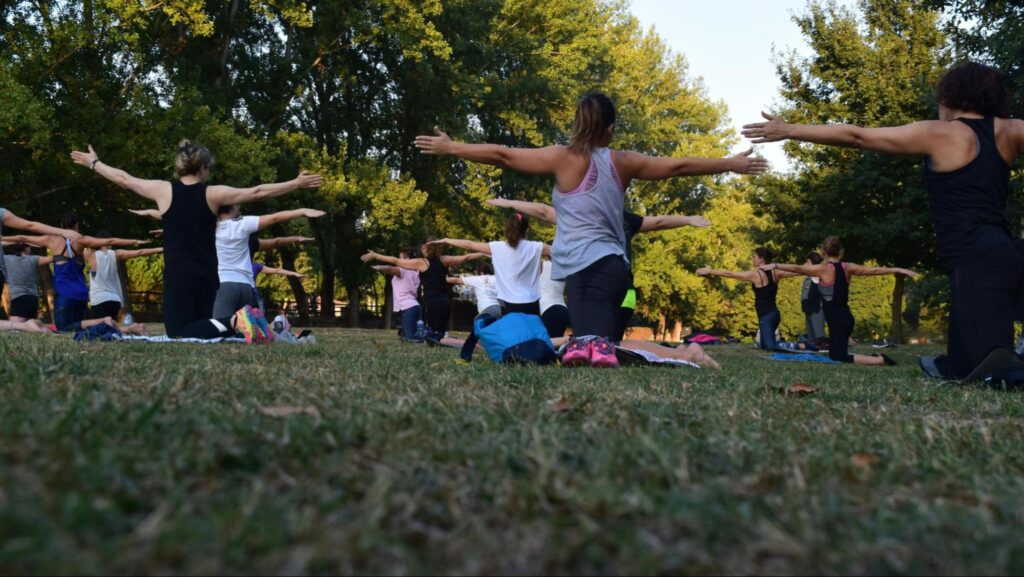Pilates has emerged as one of the most influential forms of exercise, offering a comprehensive approach to fitness that focuses on strengthening the body while enhancing overall wellness. Founded by Joseph Pilates in the early 20th century, this exercise method combines principles of flexibility, strength, and balance to deliver a holistic fitness experience. Through controlled movements and mindful breathing, Pilates not only improves physical health but also fosters mental well-being. This essay will delve into the multifaceted benefits of Pilates, highlighting its impact on physical fitness, mental health, posture, injury prevention, and overall quality of life.
Enhancing Physical Strength and Flexibility
One of the primary benefits of Pilates is its ability to build core strength and enhance flexibility. Unlike traditional weightlifting, which often targets isolated muscle groups, Pilates exercises focus on engaging multiple muscle groups simultaneously. This approach helps to develop a balanced strength throughout the body, with particular emphasis on the core muscles, including the abdominals, lower back, hips, and glutes. The controlled and precise nature of Pilates movements challenges the muscles in ways that improve endurance and flexibility. Regular practice can lead to significant improvements in muscle tone, joint mobility, and overall physical fitness.
Improving Posture and Alignment
Proper posture and alignment are crucial components of a healthy body, and Pilates excels in promoting both. Many individuals suffer from poor posture due to prolonged sitting, repetitive movements, and muscle imbalances. Pilates addresses these issues by focusing on strengthening the muscles that support the spine and promoting proper alignment throughout the body. Through exercises that emphasize core engagement and spinal alignment, Pilates helps to correct postural imbalances and improve overall body mechanics. Techniques such as the “Plank” and “Saw” enhance core stability and encourage a neutral spine position. This not only helps to prevent common issues like back pain and shoulder tension but also improves overall body alignment.
Supporting Mental Well-Being
In addition to its physical benefits, Pilates offers substantial mental health advantages. The practice encourages mindfulness and concentration, which can lead to reduced stress and improved mental clarity. The focus required during Pilates exercises promotes a state of relaxation and mental presence, helping to alleviate anxiety and improve overall mood.

By incorporating breathing techniques and mindful movement, Pilates helps to cultivate a sense of calm and mental well-being. These practices promote a mind-body connection that can enhance emotional resilience and mental focus. Engaging in regular Pilates sessions can serve as a form of self-care, offering a structured environment to unwind and rejuvenate both the body and mind.
Aiding in Injury Prevention and Rehabilitation
Pilates is often recommended for injury prevention and rehabilitation due to its emphasis on controlled, low-impact movements. The method’s focus on strengthening the core muscles and improving flexibility can help to address muscle imbalances and prevent injuries associated with poor posture and weak support structures. For individuals recovering from injuries, Pilates offers a gentle yet effective approach to rehabilitation. The method’s low-impact nature reduces the risk of further strain or damage while still providing a challenging workout. Exercises can be modified to accommodate various stages of recovery, allowing for a gradual and safe return to full activity.
Enhancing Athletic Performance
Athletes across various disciplines are increasingly incorporating Pilates into their training regimens due to its ability to enhance performance and prevent injuries. The focus on core strength, flexibility, and balanced muscle development translates well to improved athletic performance. Pilates exercises can complement traditional training methods by addressing muscle imbalances and promoting overall body awareness. For instance, exercises that target the core and improve stability can enhance an athlete’s performance in sports that require strength and coordination. Similarly, improved flexibility and range of motion contribute to better overall movement efficiency. By integrating Pilates into their training routines, athletes can experience enhanced physical performance, reduced risk of injury, and faster recovery times.
Promoting Overall Quality of Life
The cumulative effects of Pilates practice contribute to an improved quality of life. By enhancing physical strength, flexibility, and posture, individuals can experience greater ease in daily activities and improved overall physical health. The mental health benefits of Pilates, such as reduced stress and increased relaxation, further contribute to a better quality of life. Moreover, Pilates fosters a holistic approach to wellness by promoting a mind-body connection that enhances self-awareness and emotional resilience. This comprehensive approach to fitness and well-being encourages individuals to adopt healthier lifestyles and engage in regular physical activity. As a result, Pilates supports not only physical health but also emotional and mental well-being, leading to a more fulfilling and balanced life.

Pilates stands out as a versatile and effective exercise method with numerous health benefits. Its focus on core strength, flexibility, and posture improvement makes it a valuable tool for enhancing physical fitness and overall well-being. Additionally, the mental health benefits of Pilates, including reduced stress and increased mental clarity, contribute to a more balanced and resilient state of mind. By integrating Pilates into a regular fitness routine, individuals can experience improved physical health, enhanced athletic performance, and a better quality of life. Whether for injury prevention, rehabilitation, or overall wellness, Pilates offers a comprehensive approach to achieving a healthier and more balanced lifestyle.
